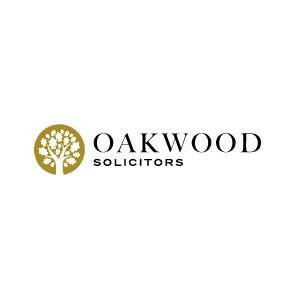Best Housing, Construction & Development Lawyers in Leeds
Share your needs with us, get contacted by law firms.
Free. Takes 2 min.
Free Guide to Hiring a Real Estate Lawyer
List of the best lawyers in Leeds, United Kingdom
About Housing, Construction & Development Law in Leeds, United Kingdom
Leeds, located in the heart of West Yorkshire, is one of the UK's most vibrant and expanding cities. Housing, construction, and development play a crucial role in its growth. The city has seen significant expansion in residential, commercial, and infrastructure projects, reflecting both the nation's economic development and the evolving needs of its residents. The laws governing these sectors in Leeds are designed to ensure quality, safety, sustainability, and the promotion of community growth. Legal frameworks are in place to address planning permissions, land use, property development, tenant-landlord relationships, and other related issues.
Why You May Need a Lawyer
There are numerous reasons why individuals and businesses in Leeds might require legal assistance in the housing, construction, and development sectors. Common scenarios include:
- Disputes between landlords and tenants over obligations and agreements.
- Challenges in obtaining planning permission for new developments or alterations.
- Problems related to zoning laws and land use regulations.
- Construction defects and contractual disputes between property developers, builders, and clients.
- Lease agreements, renewals, and terminations.
- Environmental compliance and building regulation issues.
- Resolving boundary disputes and issues related to property title.
- Assistance with affordable housing schemes and developments.
Local Laws Overview
The legal landscape for housing, construction, and development in Leeds is primarily guided by both national legislation and local bylaws. Key aspects include:
- Planning and Development Control: Governed by the National Planning Policy Framework (NPPF) and local planning documents, ensuring sustainable development.
- Building Regulations: Enforced to maintain safety standards, these regulations cover diverse aspects such as structural integrity, fire safety, and accessibility.
- Landlord and Tenant Law: Includes regulations on tenant rights, eviction procedures, and property maintenance responsibilities.
- Environmental Law: Focuses on the impact of developments on the environment, including waste management and emissions.
- Affordable Housing Initiatives: Regulations encourage the development of affordable housing to meet the needs of lower-income residents.
- Historical Preservation: Laws to protect heritage buildings and areas, ensuring new developments are in harmony with the city's history.
Frequently Asked Questions
What is planning permission, and do I need it for all types of construction?
Planning permission is an approval required for significant developments or changes to existing structures. Not all work requires planning permission; minor renovations or certain types of construction fall under permitted development rights.
How can I resolve a landlord-tenant dispute?
Start by reviewing the tenancy agreement and discussing the issue directly with the other party. If unresolved, legal advice or mediation through services like Citizens Advice can help, before considering tribunal or court action.
What should I do if I face delays in my construction project?
Assess the cause of the delays; if contractual breaches or other legal issues are involved, you may need to consult with a lawyer for potential remedies or dispute resolution strategies.
Are there specific building regulations for eco-friendly developments in Leeds?
Yes, building regulations emphasize sustainability. The Leeds City Council encourages sustainable construction techniques and compliance with environmental standards.
How can I check if a property has any legal issues before purchasing?
A thorough due diligence process, including a property title search and legal counsel, can help identify potential issues such as liens, rights of way, or restrictive covenants.
What are the penalties for violating building regulations in Leeds?
Penalties can include fines, mandatory rectification work, or even demolition of unauthorized structures if regulations are egregiously breached.
Can I object to a neighbor’s planning application?
Yes, you can submit an objection letter to the local planning authority, highlighting specific concerns based on planning grounds rather than personal objections.
What supporting documents are required for a planning application?
This varies by project but typically includes site plans, design details, impact assessments, and sometimes environmental reports.
How do I know if my development falls within a conservation area?
You can contact the Leeds City Council’s planning department or check their online planning maps to determine if your property is within a conservation area.
What is the process for evicting a tenant in Leeds?
The process involves serving proper notice, such as a Section 21 or Section 8 notice, depending on circumstances. Legal counsel is advisable to ensure compliance with the law and potentially necessary court proceedings.
Additional Resources
- Leeds City Council Planning Department: Offers guidance on planning applications and regulations.
- Citizens Advice Leeds: Provides free, confidential advice on landlord-tenant disputes and housing rights.
- The Royal Institute of Chartered Surveyors: Offers professional advice on property and construction matters.
- Ministry of Housing, Communities & Local Government: Provides broad resources on housing laws and policies applicable across England.
Next Steps
If you require legal assistance in the field of housing, construction, and development in Leeds, here are some steps to guide you:
- Identify Your Needs: Clearly outline the legal issue or query you have, gathering relevant documents and information.
- Consult Professionals: Contact a specialized solicitor or law firm experienced in housing and construction law.
- Explore Initial Advice: Many legal advisory services offer free initial consultations or assessments to understand your case better.
- Consider Alternative Dispute Resolution: This can provide a less confrontational and cost-effective resolution if disputes arise.
- Stay Informed: Regularly update your knowledge on local laws and policies related to your case.
Lawzana helps you find the best lawyers and law firms in Leeds through a curated and pre-screened list of qualified legal professionals. Our platform offers rankings and detailed profiles of attorneys and law firms, allowing you to compare based on practice areas, including Housing, Construction & Development, experience, and client feedback.
Each profile includes a description of the firm's areas of practice, client reviews, team members and partners, year of establishment, spoken languages, office locations, contact information, social media presence, and any published articles or resources. Most firms on our platform speak English and are experienced in both local and international legal matters.
Get a quote from top-rated law firms in Leeds, United Kingdom — quickly, securely, and without unnecessary hassle.
Disclaimer:
The information provided on this page is for general informational purposes only and does not constitute legal advice. While we strive to ensure the accuracy and relevance of the content, legal information may change over time, and interpretations of the law can vary. You should always consult with a qualified legal professional for advice specific to your situation.
We disclaim all liability for actions taken or not taken based on the content of this page. If you believe any information is incorrect or outdated, please contact us, and we will review and update it where appropriate.














